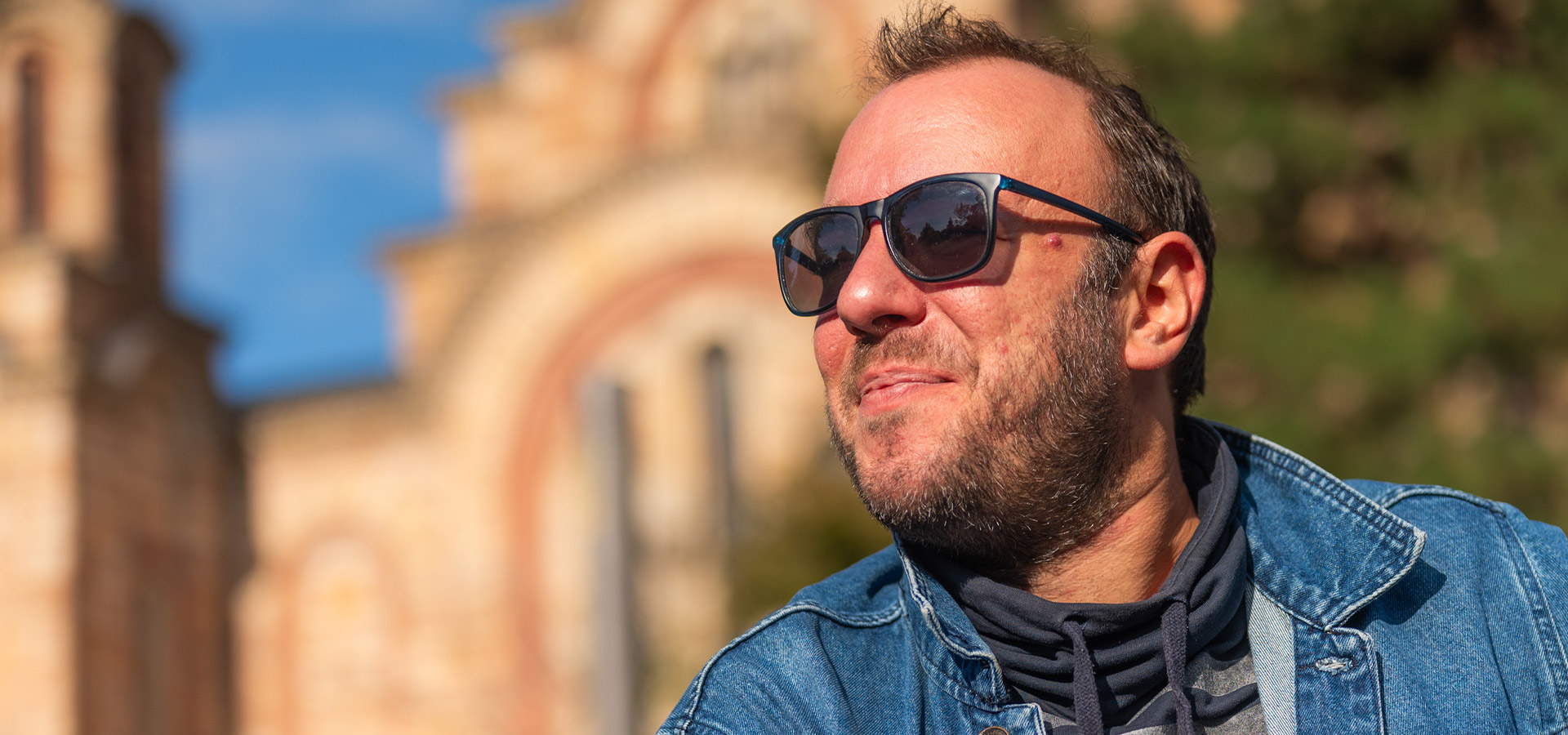Filip Ugrenovic: The comedian who nurtures the spirit of Belgrade
Laughter and humor are the two things everyone knows him for. Filip Ugrenović, stand-up comedian and host, screenwriter of the quiz show "The Weakest Link," and collaborator on the quiz "The Chase," explains in an interview for 011info why Belgrade was his city even before he moved there, and reveals how and why a Political Science student became one of the pioneers of the local stand-up scene.
You’re originally from Kraljevo, and after a bit of a detour, you moved to the capital in 2007.
Yes, I came to Belgrade to study Political Science. Two days after the entrance exam in Belgrade, I went to Kragujevac and applied to the Faculty of Law, where I got in with state funding because the entrance exam was straightforward. You get 200 questions, memorize the answers, and take the test. Essentially, you rely on your high school success, and mine was quite good.
However, I also passed the entrance exam for Political Science, but as a self-funded student. Now, you can imagine how it felt for a family from Kraljevo to decide whether you should pursue the studies you love, which at the time cost 98,000 dinars (around 300,000 dinars in today’s terms). On top of that, we needed money for rent.
At first, my father was for the Law Faculty, but I ended up in Belgrade. Fortunately, rents were low back then. Throughout my studies, I paid around 100 euros for rent plus a few thousand for bills, which is laughable by today's standards. One year, I even rented a studio near the Arena for only 50 euros—talk about luck.
On the other hand, during my studies, I never shied away from working. I knew I’d have to volunteer a lot and did various jobs—selling newspapers on the street, carrying photocopiers around Zemun... I remember working for a guy who sold eggs, and I carried cartons for him, but he still owes me, what was a lot for me at the time, 600 dinars. I also got a job at Svet+ TV, where I earned quite well.
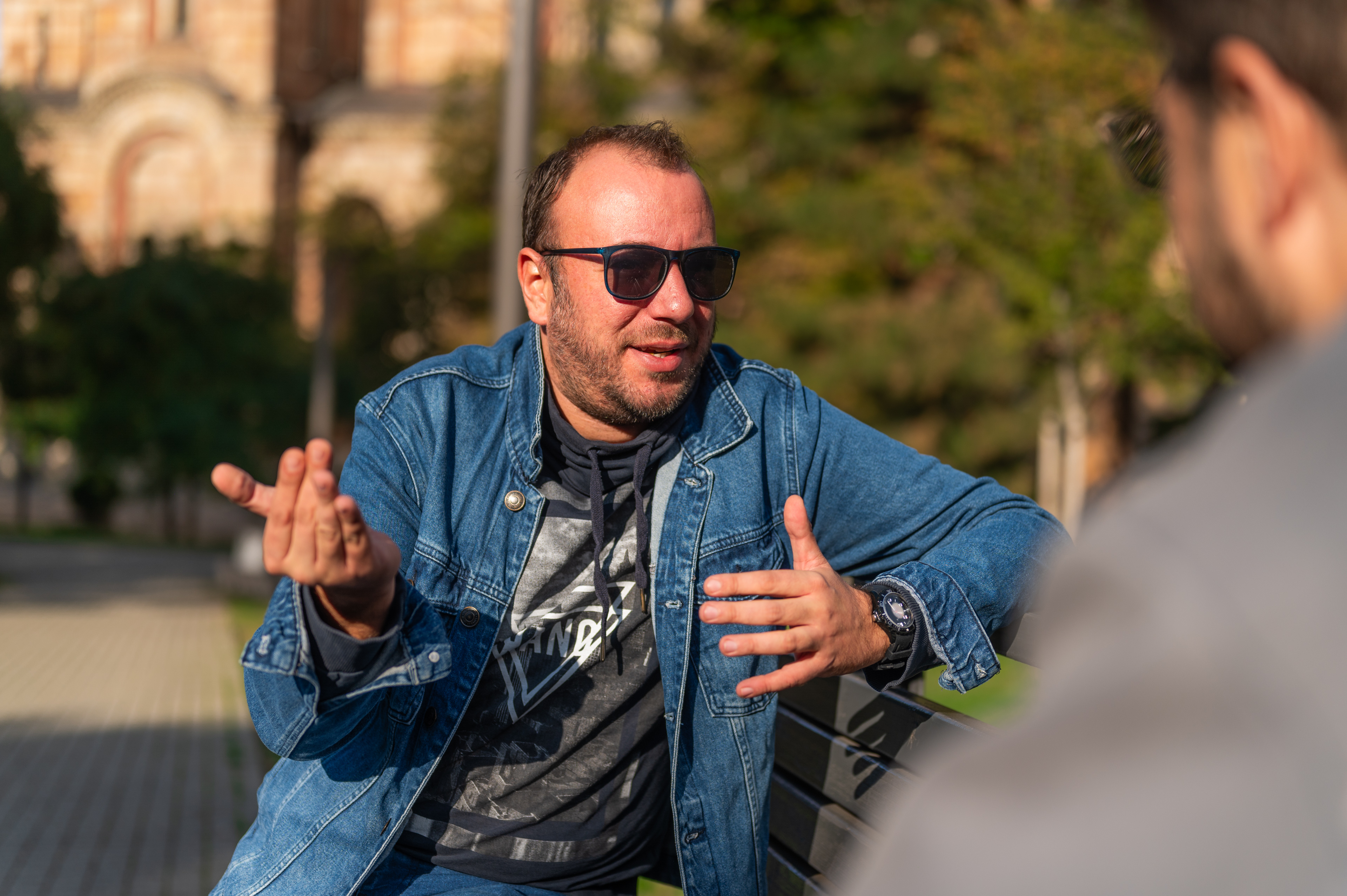
How was your first encounter with Belgrade?
Well, I wasn’t one of those who came through Balkanska Street. When I moved, I lived in Miljakovac, so I came to the capital via the Ibar highway to Žarkovo, and from there on the 50 bus. So, my first encounter with Belgrade was the 50 line, which took me to Borska 38, where I lived. I think that says it all.
Essentially, I immediately fell in love with Belgrade because it truly offers opportunities. If you’re someone with knowledge in a particular field and you’re not too old, I think it’s very easy to find a job or a gig in Belgrade.
I know many people in Belgrade don’t look favorably on those from the provinces, but somehow the capital, unlike other cities, belongs to everyone. It’s like that everywhere in the world. Vršačani belong to Vršac, Zaječarci to Zaječar, Kraljevčani to Kraljevo, but Belgrade belongs to everyone.
So, Belgrade was my city even before I started living in it.
What do you love about Belgrade, or don’t?
I love the fact that I can go out on a Monday night, stay out until morning, and everyone sees that as completely normal.
I love that I can always manage, that neither I nor the people in this city lack the ability to find a way to get by. And whenever you think there’s no way out, in Belgrade, a way out appears on its own.
So, the best thing about this city is truly that spirit. It really is.
What I don’t like about Belgrade is the incredibly high number of betting shops. That really bothers me. I don’t mind people betting, let them do what they want with their money, but it bothers me how cheap they look. As Milan St. Protić said, “Belgrade isn’t a beautiful city, it’s just irresistible.”
But I think that irresistibility is ruined by the flashing, glowing signs. I feel like everyone is putting up ads where they don’t belong—just to be seen, just to get attention. The glassed-in terraces bother me terribly because people change the facades of buildings as they please. Everything could look much nicer, cleaner, and more decent.
And I think people aren’t aware that when they do these things, they’re showing how little they actually love their city. I don’t think anyone perceives it as a lack of love for the city, but that’s essentially what it is.
Another thing that I find really incredible, not just in Belgrade but in all of Serbia, is the “poverty mentality”—and by that, I don’t mean people who earn little, just to be clear. I think this started after World War II. “Oh, he’s a good person, he suffers, he works so hard.” Why is someone a good person if they suffer? The point isn’t to work a lot, but to work well. It seems to me that the more pitiful someone is, the harder their life is, the more they’re respected as honest—and that doesn’t have to be true. Maybe they’re just not resourceful enough.

You could say your career took off after finishing university.
Exactly. Just four months after getting my degree, I got a job at Radio S. They urgently needed someone, and I already had a pretty rich CV for that time, at least in terms of radio experience. They were launching a new station, 102.2 City Radio, which is now Radio S4, and that’s where I started working. At first, I tried my hand as a host, but it didn’t quite work in the new formatted radio. I didn’t know how to do that, and they needed it to get going quickly, so I switched to radio production and production in general.
And then things started to take off. After a year and a half, I got an offer to move to Naxi, and at that time, I also started doing stand-up. I didn’t see it as a serious job back then, more like something fun—you go on stage and tell a few jokes.
It’s a bit unusual for someone from Political Science to go into stand-up.
When I started studying, I learned a lot about politics—not our day-to-day politics, but politics as a science, the history of politics, political philosophy, political economy, and sociology. And as I explored, I realized that our political scene, from 2007 to 2011, was somewhat boring. Even today, I find it extremely dull because nothing new or exciting really happens. In general, following politics in Serbia has always been about reporting the news or investigating scandals for one side or the other.
And that just wasn’t interesting to me.
For example, we had a simulation of the British Parliament at university, and when you watch the British Parliament on YouTube, it looks spectacular—they’re almost fighting. When you watch the American elections, you see their debates. It’s like a huge TV show.
By chance, I ended up at an open mic night, which was actually an audition for a show. I saw that the people there weren’t really funny. I made it to the superfinal and came in second, just behind Srđan Olman, and I realized that I could get more involved in entertainment.
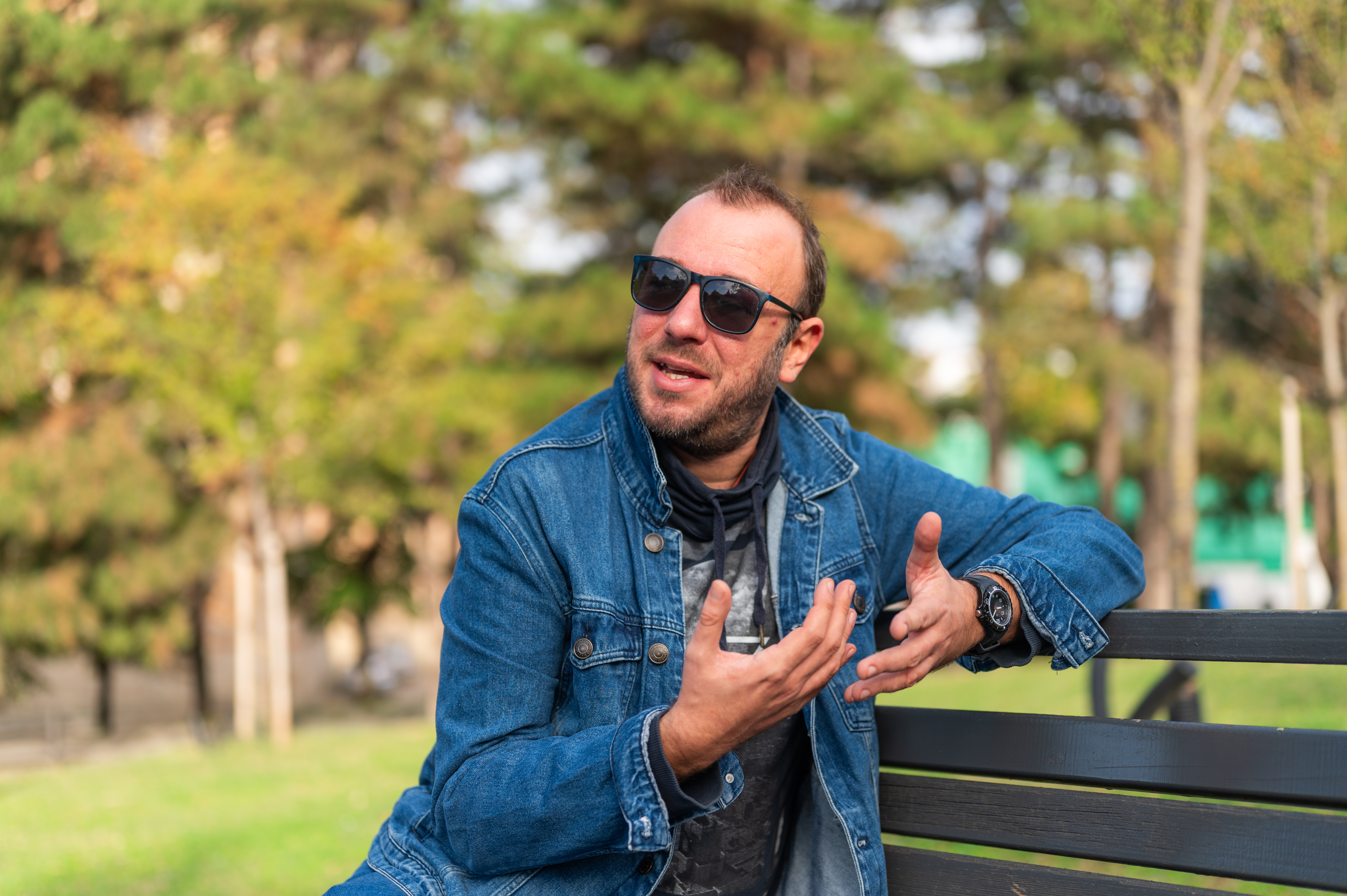
And now, when Una TV called me, my first question was whether it was an informative or entertainment program. When they said entertainment, I immediately agreed because I’m no longer interested in news in any sense.
On the other hand, at Naxi, where I hosted a morning show that became the most listened to in the city, I realized something sad—I was hosting the most popular morning show, and yet no one in the city knew who I was.
Somehow, formatted radio led to the disappearance of radio stars. After Gorica and Dragan, and Dare and Mare, no new stars emerged. Okay, maybe someone had heard of Filip Ugrenović because of my unusual surname, but no one really knew who I was. I can’t complain—I had a great salary, but I wasn’t advancing in my career.
The COVID pandemic was a turning point for me because I decided to leave radio for good. I became a freelancer, started my own company, and began working for myself. Jobs started coming in. I became a screenwriter for “The Weakest Link,” and since the same production company does “The Chase,” I became a collaborator on that as well. My seven years of experience writing for Ivan Ivanović’s show really helped.

How did you get that job?
I had a gig where I worked as a program host. Ivanović was a guest and recognized that I might be able to work for him. Actually, I publicly stated that I wanted to work with him, and he responded by saying, "Send me an email, and we’ll see." Afterward, he approached me, and I have to admit, he really turned out to be a great guy.
That opened doors for me because today, it might sound arrogant, but when you apply for a job, or some freelance gig, and you say you were a writer for Ivan Ivanović, a writer for "The Weakest Link," and that you work on "The Chase," it doesn’t guarantee you’ll get the job, but I’ve never sent an email and not at least been contacted to discuss it further.
After your work with Ivanović ended, you decided to shift your career.
I stopped working with Ivanović when United Media no longer had the budget for such a large production, and half the team had to go. After all that, I decided to focus much more on stand-up. I had some free time and started accepting gigs, like a performance in Dubai where you go and earn for a few shows what would be your salary for two months on the radio.
Here, the most expensive ticket for stand-up is 10 euros, except for some international shows. In Dubai, when I perform, the ticket price is 30 euros, so I really leaned into that.
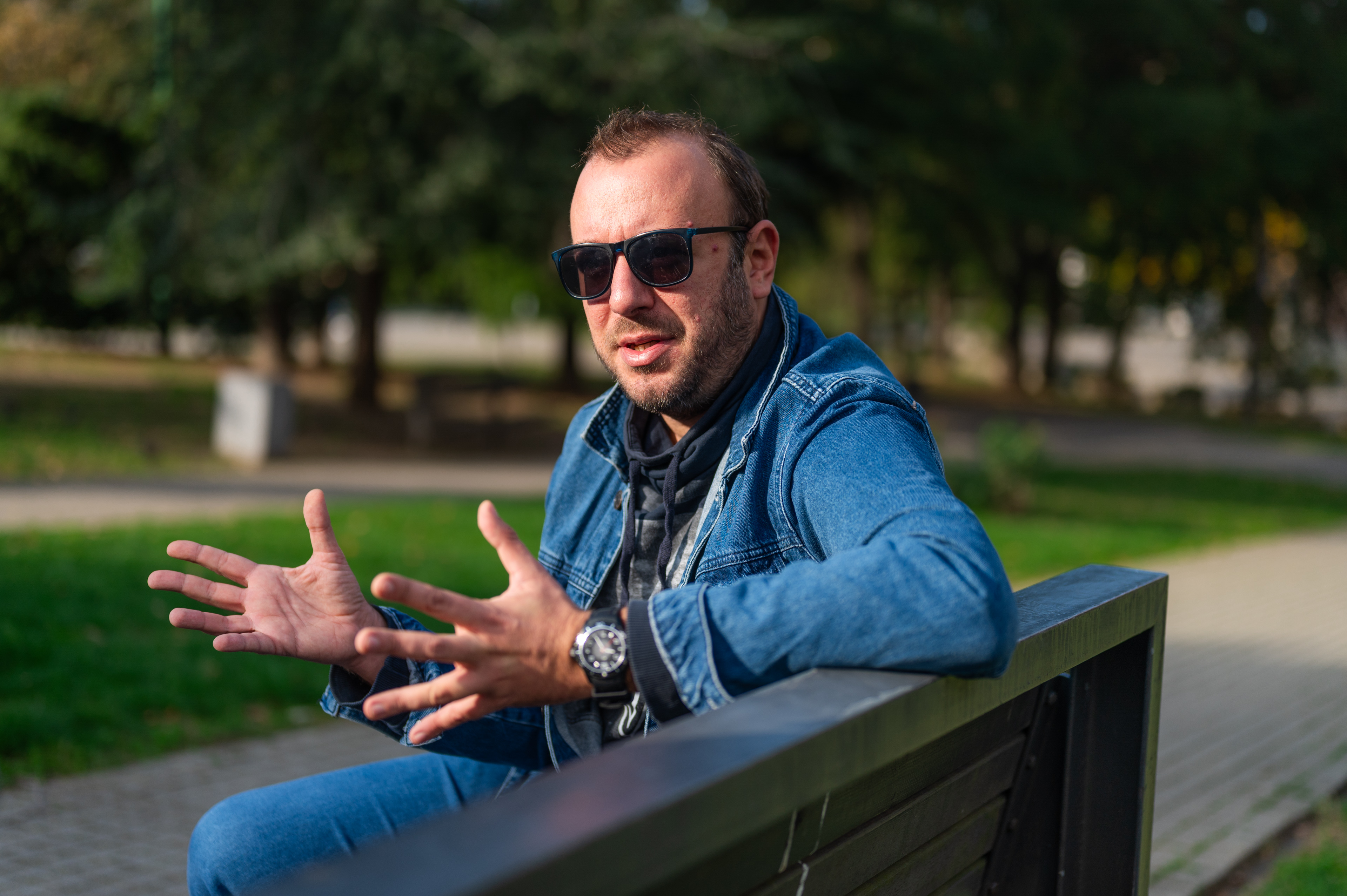
Despite that, you decided to return to TV.
When I got the offer from Prva to work on "Reci 8," I was eager to start because it was the first comedy show here that was purely a comedy show. After that, I got another offer from Una TV, but that was a bit of a different story. You go to work a few days a week, you have to keep up with current events, be entertaining, and although it’s exhausting, I find it very interesting, and it’s a pleasure to face that challenge.
Three times a week, I have to prepare a very entertaining show, maintain a certain level, and create a program that will make the audience feel good when they watch it. So, no conspiracy theories, no politics, no heavy topics—just watch TV and feel good.
That’s the whole point of the show, to make you feel good. I couldn’t refuse such an offer.
How do you view the comedy shows that used to be on our TV channels?
I miss shows like "BB Show" and "Kursadžije." Some people may not have liked them, or maybe it was humor on a different level, but there was nothing wrong in those shows. When you see the "BB Show" and Boris Bizetić dressed as Slavujka, you can't say he intends any harm or creates negative emotions. Either it’s funny to you, or it’s cringeworthy, but fundamentally, there’s nothing bad about it. Today, there aren’t many such shows; everything is focused on reality TV. I miss that kind of content.
On the other hand, stand-up doesn’t have to be high-level humor. Stand-up can be made on that basic level, or it can be on a higher level like what Jimmy Carr does, which is on an extremely high level.
It all depends on how intellectual a person is or how knowledgeable they are on a topic—they can joke about it accordingly. The question is how much of an audience you can attract with that.
Obviously, if you joke about police officers, blondes, or whatever, you’ll get the broadest audience because most people recognize those as relatable topics. If you joke about the media, which is my thing because that’s who I am, it attracts a smaller group of people who are interested in that.
So, when you’re in this business, you have to look at the bigger picture.
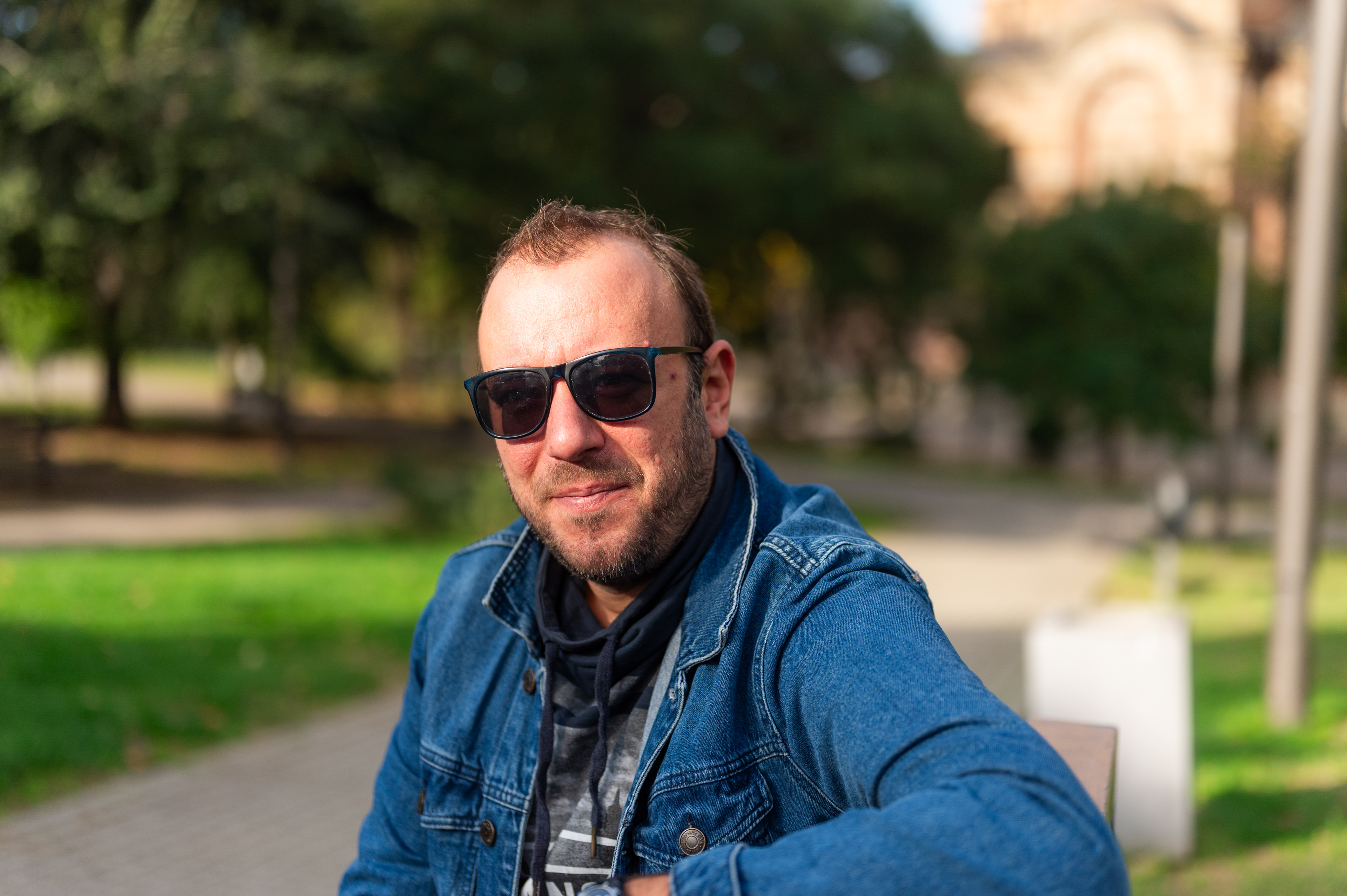
Which world-famous stand-up comedians do you enjoy?
I like Ricky Gervais the most, and generally, I like the British because, in both stand-up and TV, when they do something, they try to make it as unconventional as possible.
When you look at our TV or radio stations, most programs are led by the idea of "let’s not offend anyone." We don’t play music that might make someone change the station; they stick to the safe options.
The British push boundaries. They came up with "The Weakest Link," where, for the first time, the quiz host was a woman who insults the contestants. Today, because of woke culture, the concept of "The Weakest Link" has changed globally, but they came up with it.
They were the first to introduce unattractive hosts. For example, when you watch Clarkson, he’s not particularly handsome, but he’s a genius and one of the top five TV stars in the world.
Or when Ricky Gervais did the show "Life’s Too Short," where the main character is a little person—can you imagine a show like that airing in Serbia? It’s simply impossible.
I think it will take a lot more time for people to realize that something conventional, something that’s been seen before, won’t make a significant impact. You need something new and different for that.
For example, we have the Eurovision Song Contest, a festival on RTS, which is made to be different. The songs are different, the production is different, it’s incredibly expensive, new and different people are featured, and on top of that, it represents our country. People talk about that festival a month before and two months after.
Imagine if we constantly created such programs. Yes, it takes a lot of money, but it creates a cult following—that’s how you make something iconic.
When you have someone who stands out from the crowd, like Rada Đurić, people watched her because they believed in her and made her an icon of the fight for a better, more beautiful Belgrade.
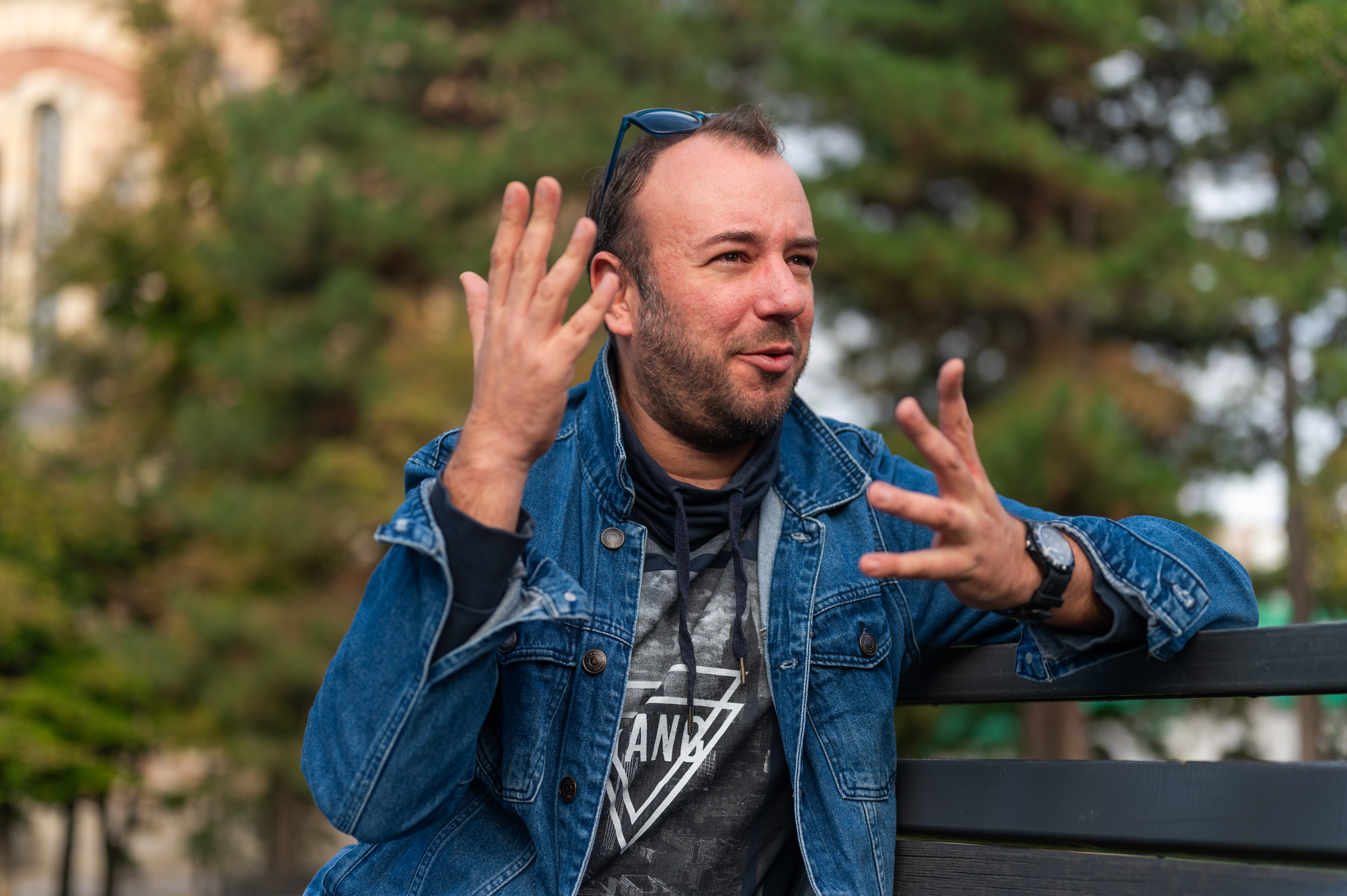
What are you currently working on?
I’m working on three shows, two scripts, and one evening of improvisation, or crowdwork, where people simply come, we talk to them, and try to make it funny.
Of course, there’s less laughter than when I have a prepared script, which is logical, but the laughter is much stronger because people know it was improvised on the spot. I’m also starting to work with Dušan Varničić on a show called "Sačuvaj Bože," and we already have a few performances lined up across Serbia.
What advice do you have for someone who wants to get into stand-up?
They should come to an Open Mic Night at Ben Akiba, which is held about once every three months, and just be funny on stage. No need for formality, nothing fancy. That’s the first step. In the second step, you get into the structure—what’s a punchline, what’s a tagline, what’s a statement, and what stand-up really is. You learn that over time.
At first, it’s important to just let out your ability to make people laugh. Everything else is an upgrade, and it’s something you’ll keep learning throughout your life.




 3 ℃
3 ℃

